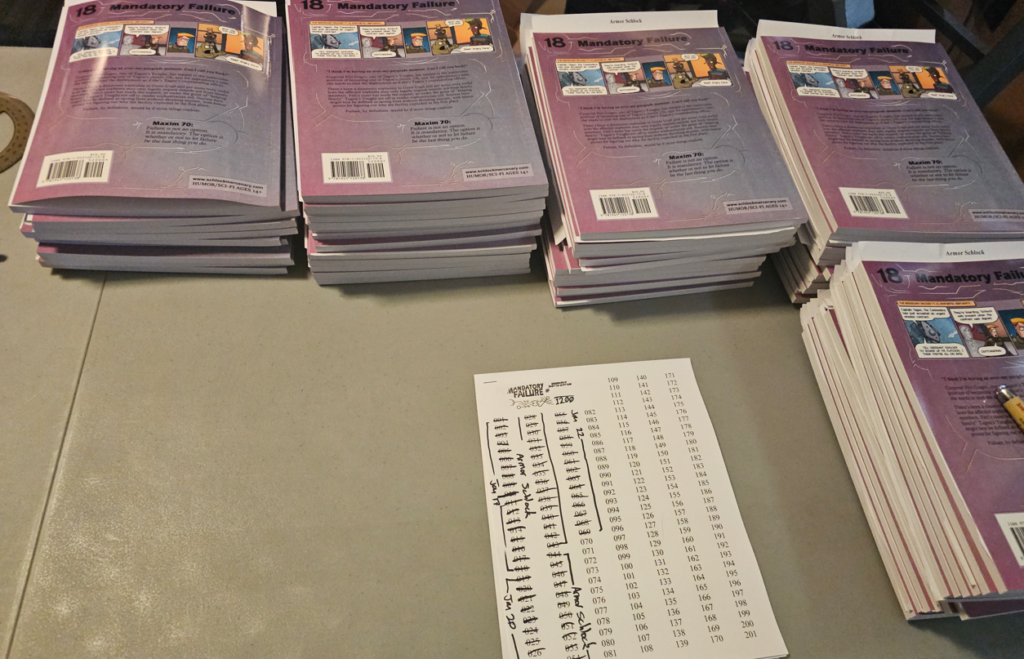How did 2024 go for me?
Well, the beginning of the answer to that question can be found in the date of this post. We’re two-thirds of the way through January and I’m only now finding the time and energy to write a year-end thingy.
The end of the answer is a bit bleak. In summary, I learned that I’m more disabled than I thought I was. I still make big plans with high hopes, but then I overdo it and end up “soft” crashing for weeks at a time. This has delayed everything, including the release of Book 18, which we originally planned to be shipping six months ago.
The middle of the answer, the meaty part, would be a retrospective itinerary of sorts, and I’m not sure I have the energy for that kind of detail.
The high points: I finished everything that was keeping Book 18 from being sent to the printer, and I started working on the Bonus Story for Book 19. I attended GenCon Indy, WXR 2024: Write on the Navigator, and Dragonsteel Nexus. I learned to prepare a wide variety of 6FED-friendly meals for Sandra, and because necessity is the mother of invention I invented a no-egg mayonnaise.
One thing I’m quite pleased with: I spent very little time adjusting, revising, or re-working my zero-gravity workstation. Similarly, I didn’t need to iterate my Technocane. I probably put 300 hours into those things during 2023, and those hours began paying dividends in 2024. I learned that there is enormous satisfaction to be found in consuming the fruits of a job well done.
I wish I’d done more, though. I planned to do more, but the chronic fatigue aspects of Long Covid are, to me, the plow described by poet Robert Burns when he bemoaned the state of the best laid plans of mice and men. My plans were big, but were mouse-sized compared to the churning, earth-moving disruption of this disability.
Bleak, perhaps, but let me play a hopeful note as we return to the end of the answer: I learned a lot about my new limits during 2024, and I began arriving at strategies to make the most of the narrower space within which I must work. I won’t make any promises for 2025, not yet at least, because one of those strategies is learning to take things day by day.
Today has been productive for me. I haven’t done all of the things, but even at my healthiest I was never able to do all of the things. I can accept that. I have learned to take the win, and then take a break.



